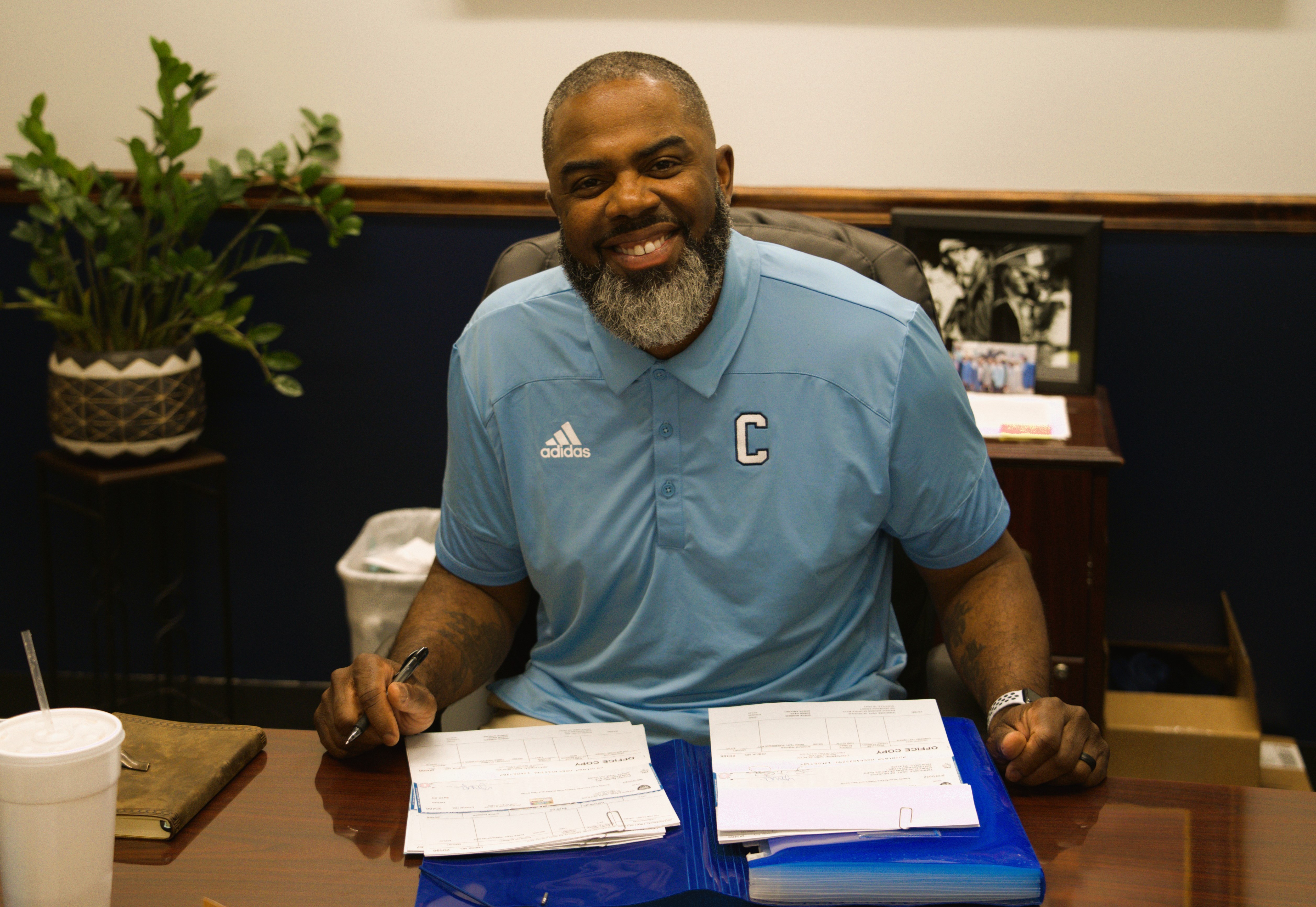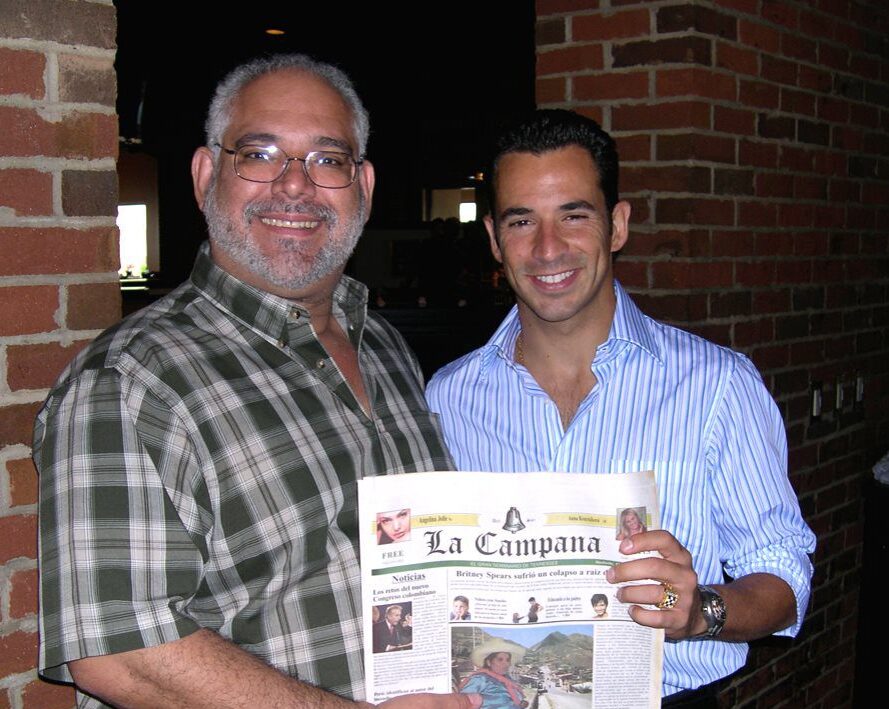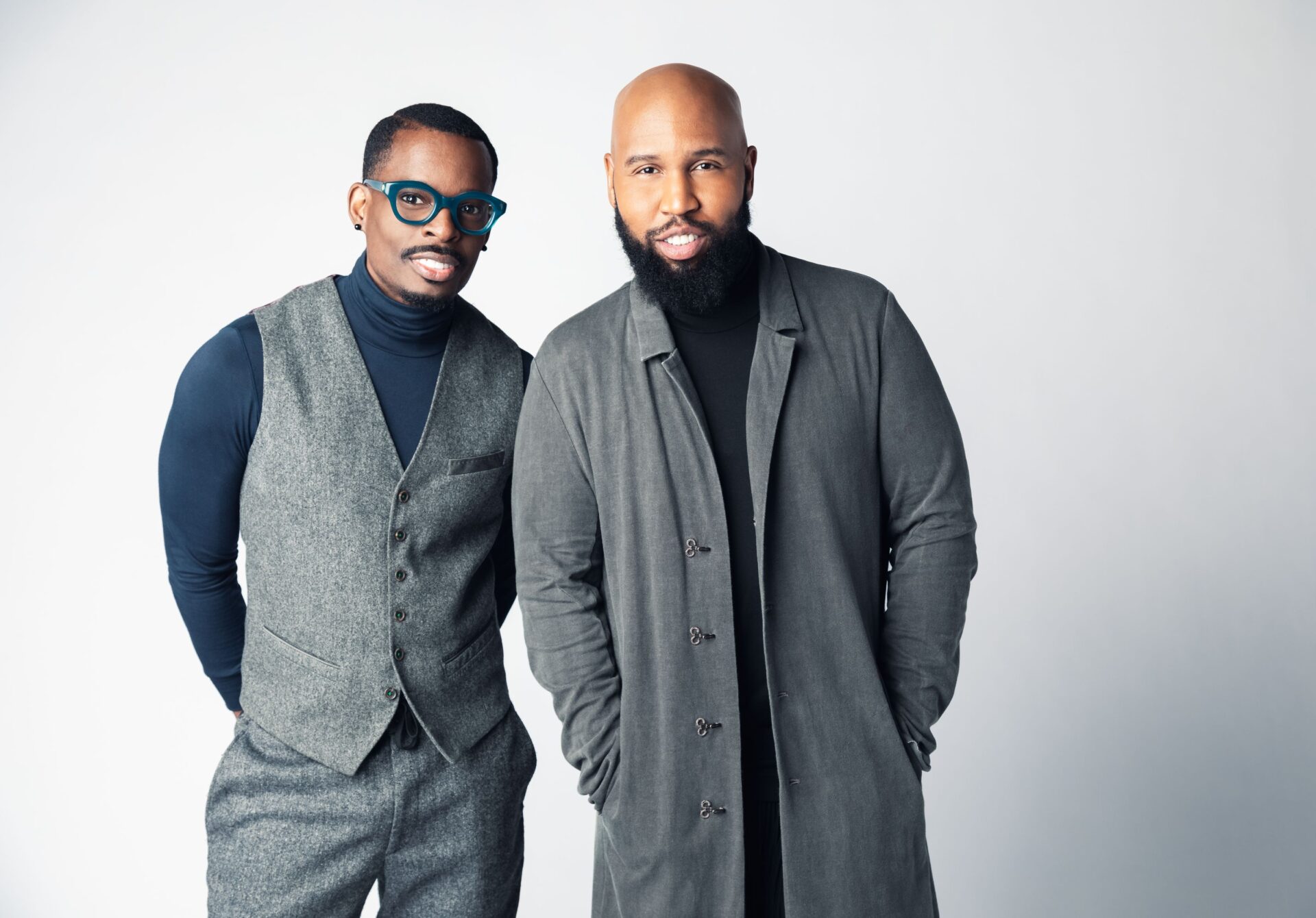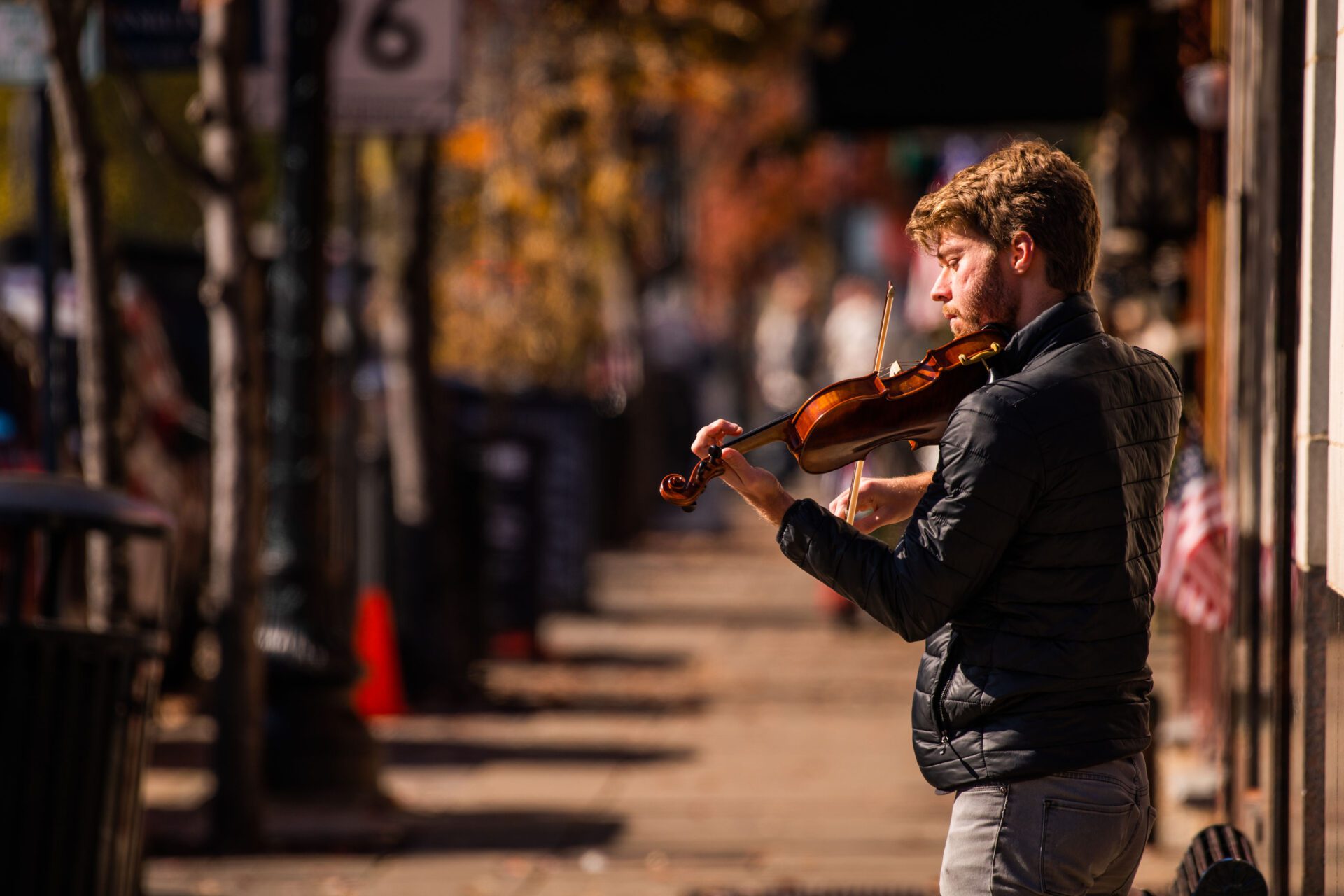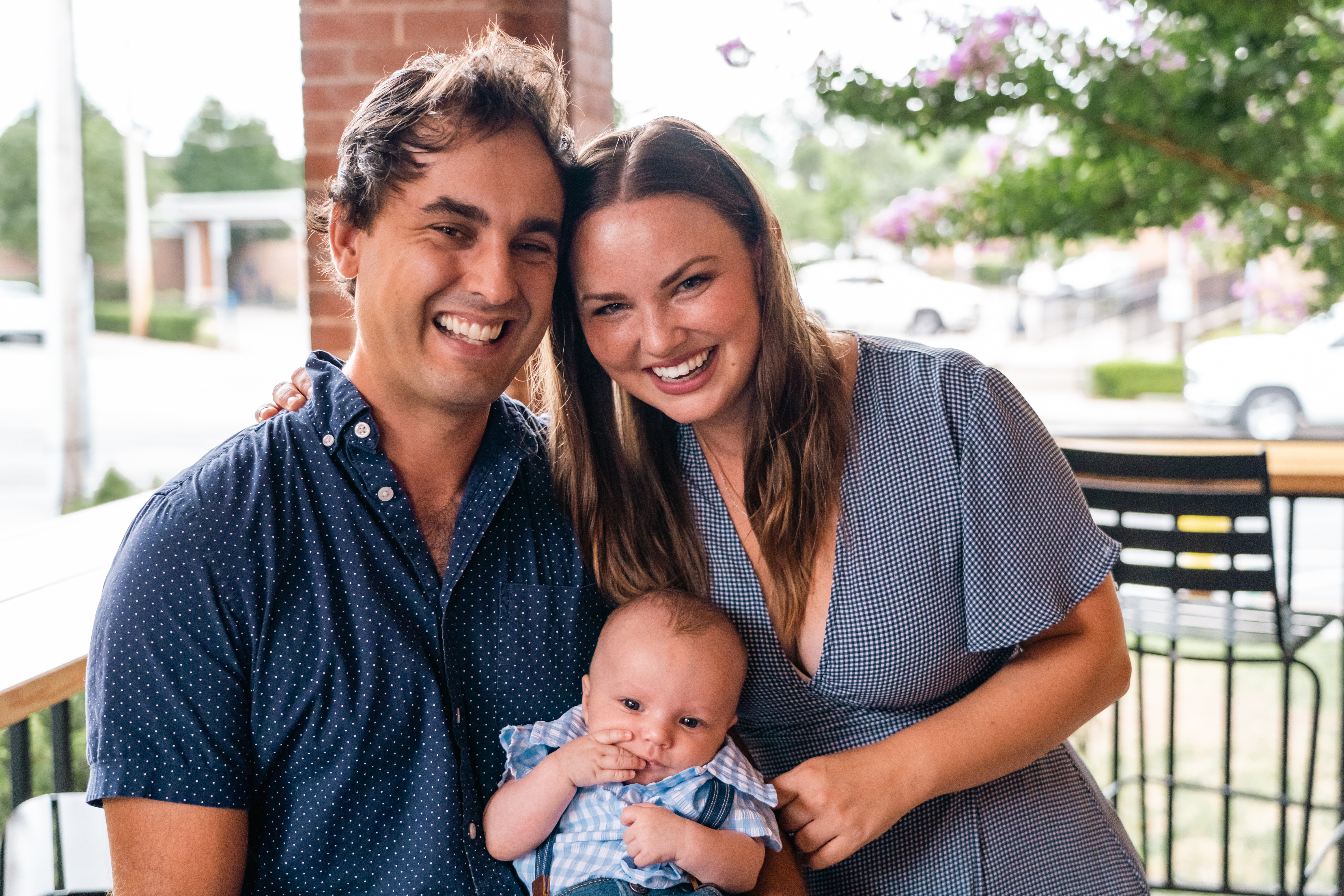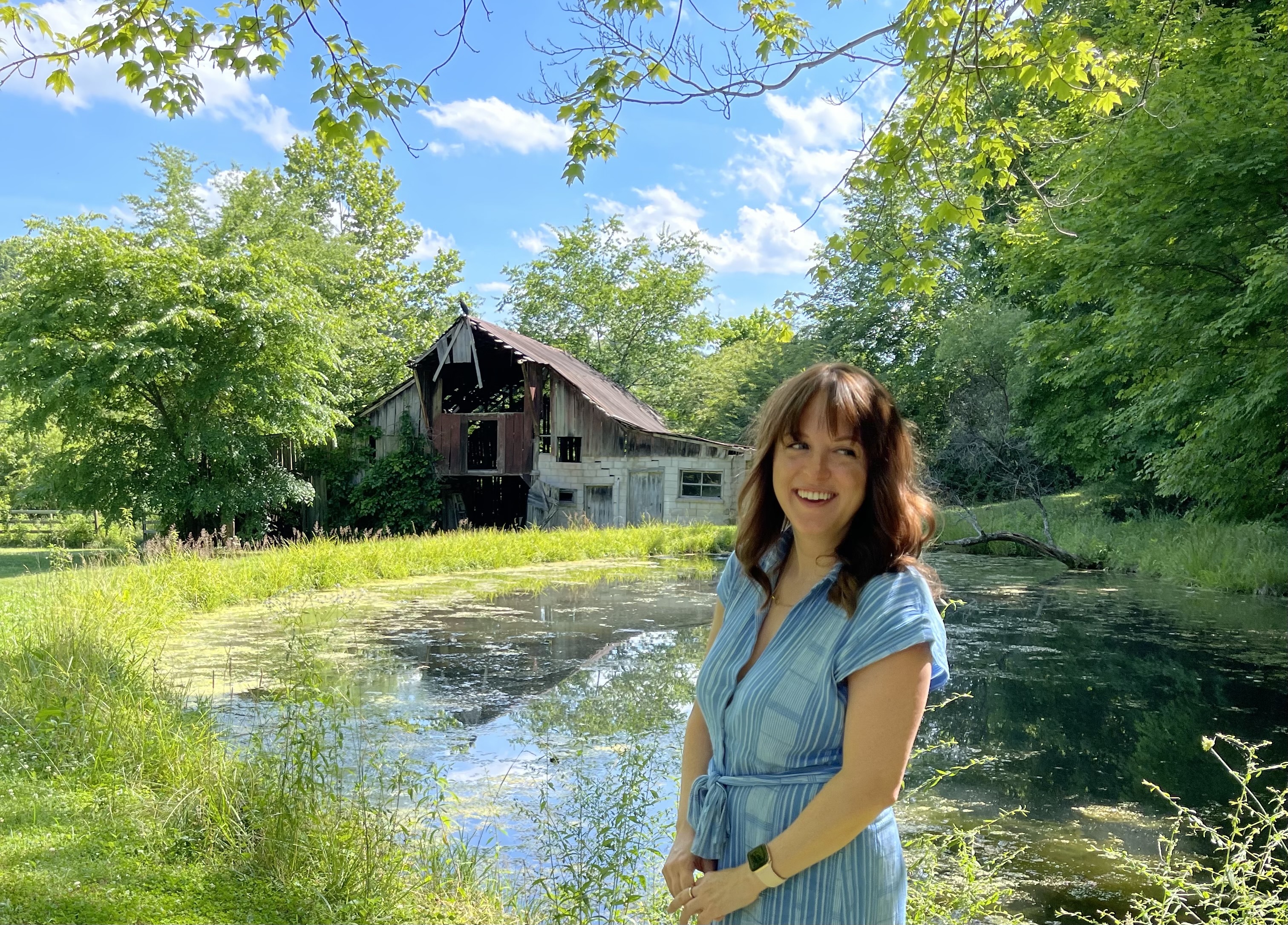"I feel like I grew up here, although not as an adolescent but as an adult. I moved here in this community when I was 24 or 25 years old figuring out what a co-pay was and all that stuff. I became an adult here. I had to grow up faster in a lot of ways; I was the oldest raised by a single mom and was doing a lot of adult things as a young man. I didn’t know what I didn’t know until I needed to know it, and I grew up here in a lot of aspects, especially in this general area not too far from this campus over there on Liberty Pike. I’ve been in Franklin since 2000. This is pretty much all I’ve really known. Even as kid going back and forth to Vegas and Utah, this is the longest I’ve ever lived in a community in my life. I became a man here. I made a lot of mistakes along the way, and I hope I continue to grow from them, but this community helped raise me. Most of the time, I don’t really even go to Nashville. I stay within the radius of this town. Every now and then I go to Brentwood or Thompson’s Station or Spring Hill, but I pretty much stay in Franklin. So, this community means a lot to me. It’s actually kind of funny to even be the principal of Centennial High School because I remember I used to come up to this school and work out here in the off-season. I used to run that hill behind the baseball field. I used to run that track. I didn’t even know how much this school meant to me until I got here, and I was like, “Dang, I’ve been eyeballing this school for years.” Things happen for a reason, and I had to go grow as a man, as an educator, and as a leader before I got here, and all those experiences I think have helped me. I just feel like I have come full-circle, and that’s because of my time in Franklin, Tennessee. It’s been interesting to see the growth within the city and map it out with my own growth. This is home – this is what I have been preparing myself for, for this very job and for this very time. This is where I am supposed to be.
When you’ve been doing something for pretty much your entire adult life, really since I was a kid, and you’re in a crossroads of “I can keep chasing this dream or I can do something else,” there was a point I felt disconnected – almost just defeated. I had a couple of rough years with injuries I was always rehabbing, and I could never really turn football off. You know, you see athletes playing professionally, and while you’re always on, you also schedule little breaks and vacations. But I never did for about a four-year stint because I tore my ACL, I tore my Achilles, then I tore my hamstring. And it was just four years of never being able to just relax, knowing what's going to happen next. I’d then go from one team, then another one. It just got to a point at thirty years old where I was tired of the grind. But - it’s what I knew. I knew that work ethic, I knew that passion. So, what do you do at 30? I mean, I had my bachelor’s degree, so naturally, it was to coach. I sought some professional opportunities or thought they were. And I found out how political and even more volatile the profession coaching can be too. If I had started my route to college and did the GA thing, I would probably be a coach at a Power Five school. I found that starting coaching at a major university right after playing was hard. But you know, but starting after playing, I found it hard. And I think they're getting a little better with it. But back then, the comments I heard was, “You know it’s a lot of work, right?” I've been working my whole life! “You know the pay is not as good as in the NFL.” I didn't expect it to be. I would hear those kinds of cop-out statements trying to deter me from coaching. I was like, “Man, I'm good, I know what I’m getting myself into.”
Sissy Wade was the head of FRA and offered me a part-time job. It was perfect for me. I was part-time, came in midafternoon like 11 or 12 o'clock, taught middle school PE with a co-teacher. I was a glorified TA, really; she did all the lesson planning and organizing. I just helped her manage the kids and played with them. It was one the most fun jobs I've had. I got to play kickball and football. I did the mile run with some sixth graders, and they beat me - and it was just one of the most fun times I had in a job as a professional. I was having fun with that, and I realized I enjoyed coaching, and I didn't have this expectation that every kid was like me or the guys I just finished playing with. But at the same time, I'm 30 - I got kids, I got bills to pay, and I don't want to be using my savings to fund my life. So, it just so happened I was playing softball as a way to stay in shape and stay active, and two of the guys on the team were both principals. One was Todd Campbell, the principal at Independence at the time, and the other was Tony Majors who was just named principal at GlenCliff, and he had some Title One funds for supplemental positions. Family Involvement Coordinator was the first one he offered me. It got me in a building and placed me into leadership positions. I had a plan for me. So, I went to public school and then moved from that to Graduation Coach and then eventually went to Williamson County as AD, then as a Coach and PE teacher. Once I got into that, I wanted to be justified for all the opportunities that were afforded to me. I wanted to be qualified so I was justified. So, I went back to school, and that's one of the reasons - so people didn't think I was just getting by on being the former professional athlete. I wanted to at least speak the jargon and talk to people. I went back to school the first time to get my degree in Leadership to be athletic director. Then, when I moved to WCS and had my own class, I had to get my master's and my teaching certification with the Praxis. And so, it just grew from there.
I don't get rattled. I've always joked and had fun. I don't get upset too often. And that's kind of how I've always been in these roles - never too high, never too low, and that comes from playing ball. You can never be too high or too low. Because the sport literally changes by the second, if not sooner. You can have a game-winning kick, and the next thing you know, five seconds later they're kicking it for them. I feel my strengths here is that I can always be a calming presence. I think being in the public eye, for as long as I have, has taught me to be more relational and more open to people. Even when I played ball, people would call me shy. I didn't like the spotlight. I just wanted to do my job, to play ball and go home, but what comes with the job is “fame” - which I don't think I'm famous. I say that in quotes because it’s just fame because of what I did. And it wasn't because I'm famous. There are actual famous people like Peyton; I just played on a team, you know? But all that has helped because I just love being around people and helping people grow. I still got that coach in me. I see this community of people all the time - sometimes that's good, sometimes it's bad. And sometimes it's compensating for some of my mistakes because I can say, “Here's mistakes I used to make.” I can help this kid or that teacher. Maybe that sounds hokey. I don't feel like I'm any better anybody else I just try to be me. And it's taken me a long time to get here as an adult to find out who I am and be okay with that."
- Dr. Kevin Dyson, Principal at Centennial High School and former Tennessee Titan
